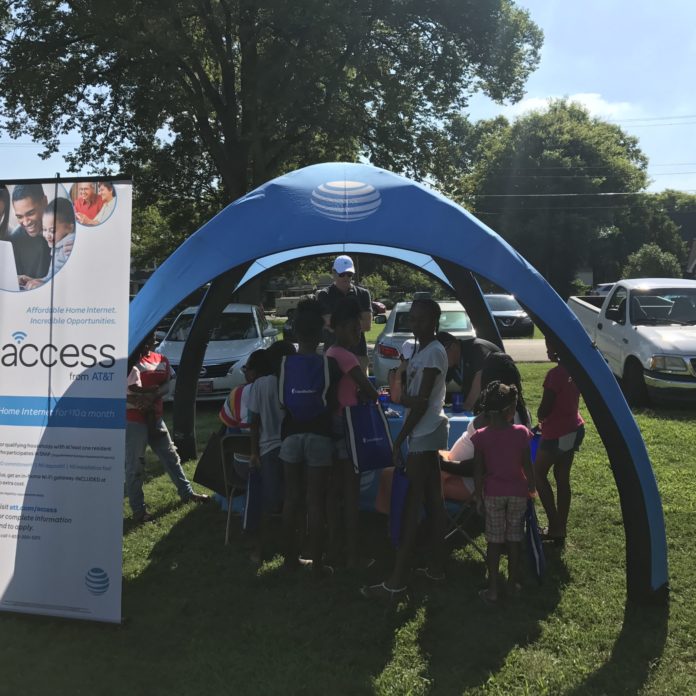Internet access is vital to the ability for students to complete homework, adults to search for jobs and for people to stay connected in work, education and life. The digital divide, or relative lack of internet access among people with low incomes, means fewer opportunities and has been a focus of efforts to help connect the unconnected.
In 21 states, AT&T offers low-cost wireline internet access within its footprint, with costs ranging from $5 to $10 per month. In order to qualify, participants must have one person in the household who participates in the federal Supplemental Nutrition Assistance Program (or in California, at least one member of the household who receives Supplemental Security Income).
Charles Herget, associate vice president of sustainability integration for AT&T, focuses on AT&T’s education-related efforts and said that the company has $400 million invested in preparing more young people for school, work and life through its AT&T Aspire program. AT&T’s recent collaboration with the National Parent-Teacher Association is just one example of the more than 600 organizations that the carrier works with in order to “make sure that people are aware of the offer and make it as easy as possible for them to be able to join in the program,” Herget said.
“Our focus on education is very important to our company,” he said, adding that its initiatives blend AT&T’s ability to provide internet access with support of education.
“We see access from AT&T as being a ladder, and then you can move up the ladder in terms of resources that you can utilize and the opportunities that exist from a digital perspective,” Herget said. “We want to help every student climb up that ladder.”
AT&T sees the most basic rung as its Access from AT&T low-cost connection program, which it has rounded out with online resources such as its DigitalYou site that provides guidance and information to new internet users who are job seekers, students, caregivers or users with disabilities. Herget said that inexperienced internet users often cite concerns over security and privacy as reasons that they may avoid the internet, and AT&T uses the site to address those issues and offer advice on navigating the online world.
Further up that virtual ladder, Herget said, are AT&T partnerships such as its work with Khan Academy, which included a $2.25 million investment in mobile learning through a free app that provides educational resources; and its support of Girls Who Code. The carrier also launched a “nano-degree” scholarship program earlier this year in partnership with online learning company Udacity.
“We use this quote every once in awhile: ‘The internet powers connections that change people’s lives,'” Herget said. “We believe that no connection is more important than the connection to education.”

